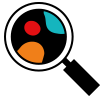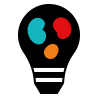Examples of projects
You will find on this page some examples of projects for each of the formats we support


Technological, Scientific or Artistic Development Project
In this type of project, pupils meet a startup and then work on a technological, scientific or artistic issue. They think about solutions and present them to the startup.
01. Develop an educational game with the IGLOO Startup
In New Caledonia, 32 students had the opportunity to visit Adecal, an incubator, and TO meet the founders of the IGLOO startup. Innovation Game Lab Of Overseas or IGLOO surfs the wave of gamification and offers serious games to different types of public. Gamification ? Serious games ? The principle is straight out of video games: we learn better when we play, when we have a goal and when our efforts are rewarded by a points system.
Accompanied by their teachers, the students worked on the Cartanou project, an educational game developed by the startup which allows them to revise the Brevet programme. Coming from a STD2A (Sciences and Technologies of Design and Applied Arts) course, the students thought about the game’s graphic identity and proposed a packaging.
| Structure involved | IGLOO |
|---|---|
| School audience | Final year of high school in Science and technology of design and art |
| City | Nouméa (Nouvelle-Calédonie) |
| Count | 32 students |
| Duration | 2 months |
02. IMAGINE APPLICATIONS AROUND THE TECHNOLOGY DEVELOPED BY ACTRONIKA
From Agoranov, startup Actronika develops interfaces that enable interactions between man and machine via the sense of touch. This type of technology is used, for example, in touch screen tablets and telephones.
20 students from the Collège Diderot in Besançon met startup Actronika as part of the “Parcours Excellence”. Their mission? To brainstorm on possible applications integrating this technology into everyday objects, to choose an idea, develop it and prototype it.
Here are the students’ achievements:
| Structure involved | Actronika |
|---|---|
| School audience | 4th grade |
| City | Besançon (Doubs) |
| Count | 20 students |
| Duration | 7 months |
03. DEVELOP CONNECTED OBJECTS WITH STARTUP SNOC
As part of the “Computer Science and Digital Creation” option, 18 students from the “Emmanuel Mounier” secondary school in Angers met with the “national society of connected objects”, SNOC, a startup incubated by Angers Technopole.
In groups of 3 or 4, the students then imagined and prototyped mini-projects. Their objective: to create simple electronic assemblies with sensors and an Arduino card, and to programme one or more actions to respond to everyday problems.
The results were presented in a small competition with a presentation and demonstration of the prototypes in front of a jury.
| Structure involved | SNOC |
|---|---|
| School audience | 1st year of high school |
| City | Angers (Maine-et-Loire) |
| Count | 18 students |
| Duration | 4 months |


Development Project with regard to Business dimensions
For this type of project, students are invited to reflect on business-oriented issues (How to develop internationally, What communication strategy to adopt? …). They then present their recommendations to the startup.
01. MEETING THE INNOVATIVE PROJECTS OF THE CASTRES MAZAMET TECHNOPOLE
Coming from an technical (Management Sciences and Technologies) course, 13 students from the secondary school “Polyvalent de la Borde Basse” in Toulouse were able to meet startups from Castres-Mazamet Technopole and carry out their british A-level project test on a concrete subject.
Divided into small groups, they worked on the commercial strategy of startup BeProject, looked for ways to develop the attractiveness of the Fab-Lab InnoFab and thought about solutions to improve the reputation of the startup Sinafis.
Logos, flyers and various recommendations were then presented to the startups partners of the project.
| Structures involved | BeProject, InnoFab, Sinafis |
|---|---|
| School audience | Final year of highschool in Sciences and Management Technologies |
| City | Toulouse (Haute-Garonne) |
| Count | 13 students |
| Duration | 7 months |
02. WORKING ON THE INTERNATIONAL DEVELOPMENT OF DEEPOR
DeepOR is a startup that puts artificial intelligence at the service of health. Its NEXT ® system is the first voice assistant designed to optimise the management of operating theatres in hospitals. Next is, so to speak, a bit like the Alexa or Google Home in operating theatres.
When the students of the BTEC higher national diploma (international trade) at the “Jean Baptiste Poquelin” secondary school meet the founder of DeepOR, they discover both the world of hospitals and that of startups. Their mission: to work on the international development of the startup, to choose a country to set up in and to define a communication strategy
The students’ return? “I had the impression that I was doing something concrete. We met a real company, we exchanged with a real entrepreneur and we provided work that will serve a purpose. I saw the interest behind the things I was producing. ” Stacy
| Structure involved | DeepOR |
|---|---|
| School audience | Advanced technician's certificate in International Business |
| City | St Germain en Laye (Yvelines) |
| Count | 33 students |
| Duration | 1 months |


Small Group Research Project
As part of their research project, the pupils meet WITH members of a startup. This gives them access to the latest research findings and professionals in the field they have chosen to work on.
01. TO CARRY OUT ITS TUTORED PERSONAL WORK ON METHANISATION WITH TRYON ENVIRONNEMENT
At secondary school in a scientific section , Rémi, Cyril and Pierre chose to carry out their tutored personal work, a A-level EXAM project test on the uses of biomass. The books did not give all the answers to their questions, so they turned to Tryon, a startup incubated by Agoranov and specialised in the methanisation of bio-waste on a local scale.
Methanisation? Biowaste ? In the tanks of Tryon the magic happens: peelings and other green waste are transformed into biogas that can then be used to heat a building or to run cars.
Rémi, Cyril and Pierre not only understood what methanisation is and found protocols for the experiments, but they also discovered what an incubator is.
| Structure involved | Tryon |
|---|---|
| School audience | 2nd year of high school in Science |
| City | Tours (Indre-et-Loire) |
| Count | 3 students |
| Duration | 8 months |
02. WORKING ON ALZHEIMER’S DISEASE WITH STARTUP DYNSEO
Pierre and Joseph are in final year (in science) at the “Descartes” secondary school in Tours. For the baccalaureate, as part of their tutored personal work they decided to work on Alzheimer’s, a neurological disease which leads to the progressive loss of mental functions and in particular of memory.
The Agoranov incubator put them in contact with startup Dynseo, which offers memory games to prevent this disease.
Pierre and Joseph initially carried out a literature review on Alzheimer’s disease. Accompanied by their teacher and by Dynseo, they then began an experimental phase during which they used the prevention applications developed by the startup with an elderly audience.
| Structure involved | Dynseo |
|---|---|
| School audience | 2nd year of high school in Science |
| City | Tours (Indre-et-Loire) |
| Count | 2 students |
| Duration | 6 months |


Class Project around Startup Creation
Accompanied by their teacher and the incubator, the students start from an idea, define a business model, work on the customer journey and produce a prototype of their product or service.
02. DEVELOP A RESPONSIBLE STARTUP PROJECT
Coming from a priority education secondary school, the pupils of the “André-Masson” secondary school in Saint Loup sur Semouse made a journey to Paris to be accompanied by Agoranov. Their project: to reduce food waste and give a second life to cork stoppers.
On the menu with Agoranov: a workshop on food waste and waste management, work in small groups on the Business Model, coaching on the pitch, all with a view to develop their mini-enterprise project and preparing for the EPA competition in their region.
A few months later, the students proudly received the “Sustainable Development” trophy.
| Structure involved | Agoranov |
|---|---|
| School audience | 4th and 3rd grade |
| City | St Loup (Haute-Saône) |
| Count | 18 students |
| Duration | 8 months |
01. IMAGINE A STARTUP PROJECT WITH THE AGORANOV INCUBATOR
In Suresnes, the teachers of three secondary schools decided to launch a major project together for the whole school year: in collaboration with Agoranov, they invited their pupils to imagine and develop startups projects in various fields.
The pupils wondered about the notion of innovation. An innovation is indeed not a simple invention. It is certainly an invention, but one that meets a real need and corresponds to a market.
The visit to the incubator enabled the students to meet business managers. The visit to the incubator enabled the students to meet with business managers and to get valuable advice for the competition organised by the town of Suresnes, in which they then took part.
| Structure involved | Agoranov |
|---|---|
| School audience | 3rd grade |
| City | Suresnes (Haut-de-Seine) |
| Count | 75 students |
| Duration | 3 months |


